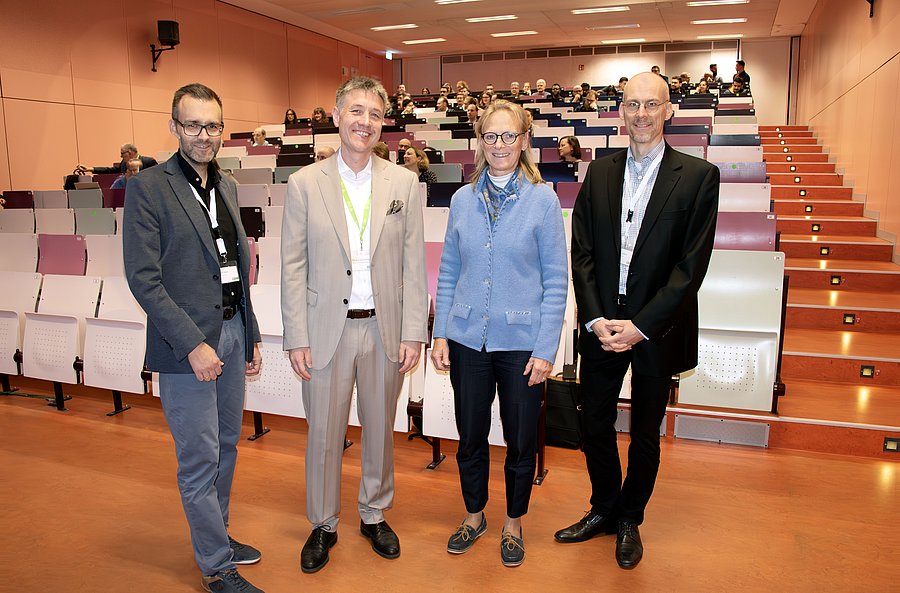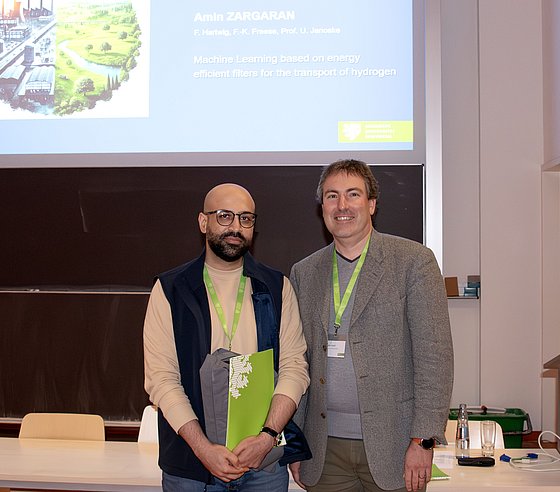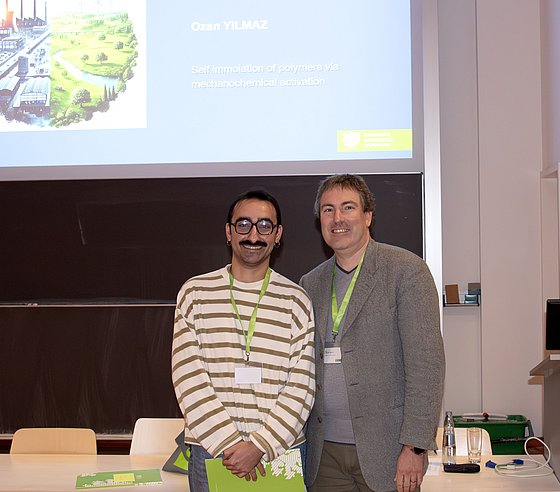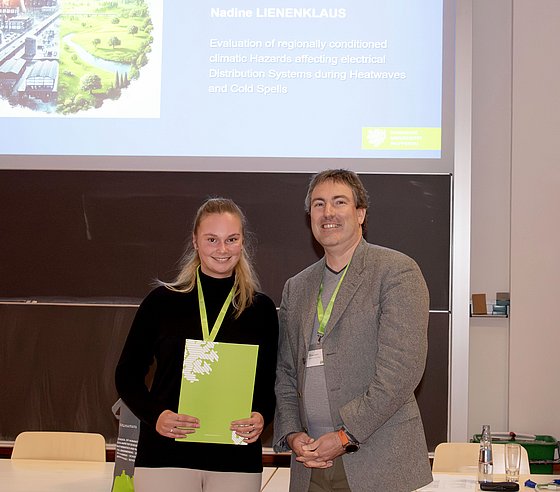Successful start
Against wasting resources and the climate crisis - new network forms at the University of Wuppertal

The rector of the University of Wuppertal and the organisational team of the "Technology Towards Zero-Waste and Zero-Carbon" field of activity: (from left) Prof. Dr Adam Slabon, Prof. Dr Benedikt Schmülling, Prof. Dr Birgitta Wolff and Prof. Dr Steffen Anders. // Photo Marylen Reschop
Around 70 participants from almost all faculties came together for the first TEC2ZERO symposium at the University of Wuppertal at the invitation of the organising team led by university professors Steffen Anders, Benedikt Schmülling and Adam Slabon. The main aim was to bring together members of the University of Wuppertal and partners from the Wuppertal Institute and Future Cleantech Architects, the university's new affiliated institute. "Together, we presented the research activities that are already taking place at our university today in order to make our planet liveable in the future. At the same time, the symposium created a platform for initiating new collaborations and hopefully projects," summarised Prof Dr Steffen Anders, Head of the Materials in Construction teaching and research area.
Around 50 contributions were presented over two days in the form of lectures, posters and written technical papers. The topics covered included concrete recycling processes, rainwater utilisation, the use of renewable energies to power critical infrastructure, sustainable design expertise, hydrogen transport and many other topics from the fields of future technologies, business, management and education as well as material flow. The contributions were also proof of how broadly the University of Wuppertal is networked with various regional, national and international partners to address the research questions - with other universities, non-university research institutions, associations, utility companies and industry.
Pulling together
In her welcoming address, University Rector Prof Dr Birgitta Wolff named one of the major challenges on the path to zero waste and decarbonisation: "In order to initiate sustainable change, it will be important to bring smart solutions to society in a socially responsible way through politics. Science, business and politics must pull together. The University of Wuppertal offers a great interdisciplinary knowledge network for finding these solutions, which will gain even more visibility through the new field of activity."
The prizewinners

Best Paper Award winner Amin Zargaran // Photo Karsten Kukulies

Best Poster Award winner Ozan Yilmaz // Photo Karsten Kukulies

Best Presentation Award winner Nadine Lienenklaus // Photo Karsten Kukulies
Another pleasing aspect was that the new network brought together experienced knowledge and ambitious young scientists - participants from different career stages were represented and engaged in dialogue. To promote young scientists, three prizes were awarded at the end of the symposium for the best publication (Amin Zargaran), the best poster (Ozan Yilmaz) and the best presentation (Nadine Lienenklaus). The aim is to publish all submitted contributions in a joint conference volume via the university library by the end of the year.
Always open to growth
"We are very satisfied with the start of our field of activity. We can well imagine a series of further symposia with a thematic focus, which could then also be open to external contributions and guests from relevant sectors," reports Prof Steffen Anders. In addition, all interested members of the university are still invited to participate in the field of activity.
New accents through fields of activity
As part of the work on the new University Development Plan 2026 to 2035, the Rectorate has defined four strategic focal points for BUW's research landscape in a joint process with researchers, committees and central institutions. Organised by researchers, the fields of activity invite all BUW employees working on relevant topics to network. The formats used to implement these activities are individual and are the responsibility of the respective coordination teams.
Overview of the four fields of activity:
- Technology Towards Zero-Waste and Zero-Carbon
- Next Generation Learning, Teaching, Knowledge Transfer
- Shaping Sustainable Societal Transformation
- AI for Empowering the Future
